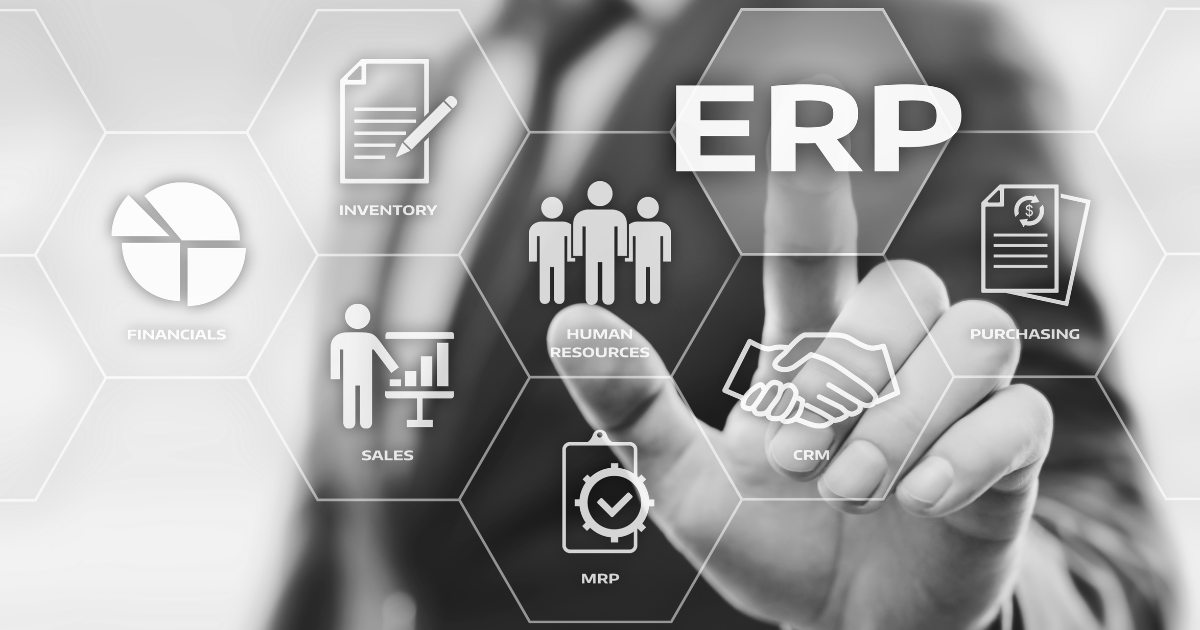In today’s fast-paced business environment, companies are always looking for ways to streamline operations and enhance efficiency.
One key strategy is integrating an Enterprise Resource Planning (ERP) system with accounting tools.
This integration can offer businesses a more unified view of their financial data and help automate many time-consuming tasks.
However, as with any business decision, integrating ERP with accounting tools comes with both benefits and challenges.
In this article, we’ll explore the pros and cons of this integration so businesses can better understand the potential impacts before making a decision.
Many businesses use ERP systems like NetSuite to manage their core operations, from inventory and supply chain management to customer relations and human resources.
However, when it comes to handling finances, many businesses still rely on specialized accounting tools, such as QuickBooks.
The NetSuite to QuickBooks Migration process can help businesses make a smooth transition between these two systems, providing a solid foundation for better integration and data synchronization.
Let’s take a closer look at the advantages and disadvantages of integrating ERP with accounting software.
1. Pros of Integrating ERP with Accounting Tools
1.1 Improved Data Accuracy and Consistency
One of the most significant benefits of integrating ERP systems with accounting tools is the ability to improve data accuracy and consistency.
When both systems are linked, data is automatically shared between the two, eliminating the need for manual data entry.
This ensures that financial data in the accounting system is consistent with the data in the ERP system, reducing the chances of errors or discrepancies.
For example, when inventory levels are updated in the ERP system, those changes will automatically be reflected in the financial records without requiring double data entry. Similarly, changes in customer orders or supplier invoices can be updated in both the ERP and accounting systems in real time, creating a seamless flow of information.
This integration reduces the risk of human error and helps businesses maintain accurate, up-to-date financial records.
By having one unified system, organizations can also ensure better compliance with regulations and audit requirements.
1.2 Time and Cost Savings
Integrating ERP with accounting software can significantly save time and reduce operational costs.
Businesses can automate many routine processes such as billing, invoicing, payroll, and financial reporting.
Instead of manually transferring data between different systems or entering the same information multiple times, these tasks can be performed automatically, reducing the amount of time employees spend on administrative tasks.
Additionally, the reduction in errors and the elimination of manual data entry help reduce labor costs associated with correcting mistakes or reconciling data between separate systems.
Employees can focus on higher-value tasks, such as strategic planning or customer service, rather than time-consuming administrative work.
For businesses that rely on ERP systems like NetSuite for operations and QuickBooks for accounting, integrating these two systems can help them save both time and money while improving efficiency and accuracy.
1.3 Real-Time Financial Insights
An integrated ERP and accounting system provides businesses with real-time financial data, giving them better visibility into their financial position.
This integration enables business leaders to make quicker, data-driven decisions based on up-to-date financial reports.
For example, managers can easily access reports on cash flow, revenue, expenses, and profits in real-time, helping them identify trends, manage working capital, and make informed decisions.
Real-time data also allows businesses to respond more quickly to financial challenges or opportunities.
By integrating ERP with accounting software, businesses can streamline financial analysis and forecasting, ultimately leading to better financial management and more effective decision-making.
2. Cons of Integrating ERP with Accounting Tools
2.1 High Initial Investment and Setup Costs
While integrating ERP systems with accounting tools can offer long-term savings, the initial costs of implementing such integration can be significant.
Businesses may need to invest in specialized software, hire consultants for the integration process, or even upgrade their existing infrastructure to support the integration.
For example, if a company is migrating from a complex ERP system like NetSuite to a more user-friendly accounting platform like QuickBooks, the process may involve data migration, system configuration, and extensive testing to ensure both systems work together smoothly.
These activities can require substantial time, expertise, and financial resources.
Additionally, there may be costs associated with training employees to use the new integrated system.
Although these costs can pay off over time, they can be a significant barrier for smaller businesses with limited budgets.
2.2 Complexity of Integration
Integrating an ERP system with accounting software can be a complex process, especially if the systems are not designed to work together seamlessly.
Businesses may encounter challenges related to data mapping, system compatibility, and ensuring that both systems can communicate effectively.
For example, when transitioning from NetSuite to QuickBooks, businesses must ensure that all data is correctly transferred and that the systems are configured to meet their specific needs.
The complexity of integration may require businesses to engage third-party experts or consultants to assist with the process.
In some cases, businesses may need to make significant adjustments to their existing workflows to accommodate the integrated system, which can disrupt operations in the short term.
The complexity of integration can also lead to technical issues or bugs that may require ongoing support and troubleshooting.
2.3 Limited Customization and Flexibility
Not all ERP and accounting systems are created equal, and businesses may find that integrating two systems may limit their ability to customize certain features.
Some ERP systems, like NetSuite, are highly customizable, but accounting tools like QuickBooks may not offer the same level of flexibility when it comes to specific business requirements.
As a result, businesses may find that the integration forces them to adopt a more rigid structure or that certain processes must be adjusted to fit the limitations of the accounting system.
For example, if a business needs specific financial reports that are not readily available in QuickBooks, it may have to rely on third-party add-ons or custom development, which can increase costs and complexity.
While QuickBooks offers many out-of-the-box features, the ability to deeply customize the system may be more limited compared to more robust ERP solutions.
For businesses with unique needs, this lack of flexibility can be a downside.
3. Best Practices for Integrating ERP with Accounting Tools
If you decide to integrate ERP with accounting software, following best practices can help ensure a smoother transition and more successful long-term outcomes.
Here are some tips to keep in mind:
3.1 Start with a Clear Strategy
Before beginning the integration process, it’s important to define your goals and objectives clearly.
What do you hope to achieve with the integration? Are you focused on improving data accuracy, reducing manual tasks, or gaining real-time financial insights?
Having a well-defined strategy will help guide the process and ensure that the integration meets your business needs.
3.2 Choose Compatible Systems
Choosing ERP and accounting systems that are designed to work together can simplify the integration process.
Look for systems that offer native integrations or are known to be compatible with one another.
For example, QuickBooks offers various tools to integrate with ERP systems, which can streamline the setup process and reduce the complexity of integration.
3.3 Work with Experts
If you lack the in-house expertise to manage the integration, consider working with professionals who have experience in both ERP systems and accounting tools.
They can help guide you through the technical aspects of the integration, ensure that data is transferred correctly, and troubleshoot any issues that arise during the process.
3.4 Invest in Training
To ensure that employees can make the most of the integrated system, invest in comprehensive training.
This will help employees become familiar with the new workflows and features of the integrated system, reducing the learning curve and improving efficiency.
Conclusion
Integrating an ERP system with accounting software can provide businesses with numerous advantages, including improved data accuracy, cost savings, and real-time financial insights.
However, the process can be complex and costly, and businesses must carefully weigh the pros and cons before moving forward.
If you are considering a migration, such as the NetSuite to QuickBooks Migration, it’s important to understand the challenges involved and plan accordingly.
By choosing the right systems, developing a clear strategy, and working with experts, businesses can successfully integrate ERP with accounting tools and unlock significant benefits.












Comments